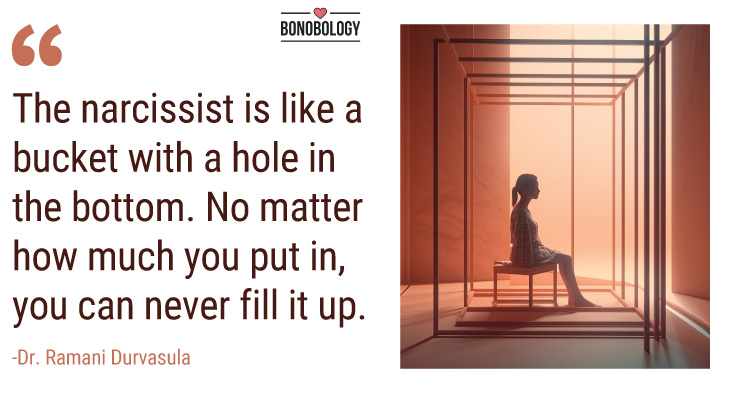Familiarity breeds contempt. This old adage rings true when your spouse says hurtful things to you and you begin to wonder how and when all that love and affection get replaced with such contempt that the person you chose to share a life with takes a no-holds-barred approach to scathing remarks and comments. Sure, the intense passion and romantic attraction of the initial days of a relationship can be hard to sustain in the long run.
But how do you go from there to an onslaught of harsh words that break your heart into a million pieces? And you’re left ruing, “My husband says mean things at the slightest provocation”, “My wife deals low blows in every argument” or even, “We say extremely hurtful things when we fight.” These are not pleasant realizations to live with, yet they’re not uncommon.
Over time, saying hurtful things in a relationship can take its toll on your connection with your spouse, with every such incident making it harder to recover from the blow of scathing comments and criticism. Besides, if using mean, spiteful words with the intent of damaging a partner’s self-respect and self-esteem becomes a pattern, it turns into abuse. That’s why it’s vital to address this problem as swiftly and sensitively as possible. We’re here to help you figure out just how to do that.
When Your Partner Says Hurtful Things: 15 Tips On How To React
Table of Contents
Forgiving hurtful words is not easy, especially when they come from the person who has vowed to love, respect, honor, and cherish you in good times and bad. Naturally then, when your spouse says hurtful things, your first instinct may well be to respond with anger. To launch an equally scathing attack on them. However, given how badly hurtful words can ruin a relationship, it may not be the best recourse.
On the other hand, if you’re struggling with thoughts like “My husband said hurtful things I can’t get over” or “My wife insulted me and now I can’t forgive”, brushing aside your emotions just for the sake of keeping the peace may also not be the best approach. So then what can you do?
It’s a situation that requires mature and sensitive handling since emotionally damaging words can trigger a cycle of criticism and lead to contempt in the relationship, which can, in turn, lead to defensiveness and stonewalling — bringing into your marriage the four horsemen of apocalypse, as established by renowned psychologist Dr. John Gottman. If you want to protect your marriage from the apocalyptic fate it may be headed toward, follow these 15 tips on how to react when your partner says hurtful things:
Related Reading: 6 Reasons Why You Should Quit A Toxic Marriage
1. Instead of saying insulting words to partner, hold your response
Do you often get the feeling “My husband misinterprets everything I say” or “My wife twists my words and uses them against me”? It is easy to feel frustrated by a constant onslaught of taunts and mean words and give your spouse a taste of their own medicine. But take a beat and think, will saying hurtful things to someone you love help in any way?
Yes, it’s not okay for your spouse to use toxic words in relationship arguments, as it amounts to verbal abuse. But the best thing you can do to prevent a bad situation from turning worse is not to let your emotions govern your reaction. The only way to achieve that is by not responding immediately.
2. Take some time and space
In the interest of not reacting immediately, it can be helpful to take some space and time away from your spouse when they launch their tirade. We’re not saying it’ll help you get over hurtful words from your husband/wife, but at least, the situation won’t escalate. At the very least, you will be spared the agony of listening to any more toxic words in relationship for the moment.
The next time you find yourself in such a situation, calmly tell your partner, “Saying hurtful things when angry is not okay. You are hurting my feelings right now and I do not want to engage with you. I need some space to clear my head and maybe you can use this time to calm down, and then we can revisit this issue.” Then,
- Step out of the house and go for a walk
- Or, reach out to a trusted friend and spend some time with them
- Maybe, spend time doing something that helps you calm down and clear your head
3. Address the issue promptly
However, taking time and space does not mean brushing the issue under the carpet and then acting like it’s business as usual. You can ignore this elephant in the room for only so long before it tramples all over your marriage. If left unaddressed, thoughts like “My husband says horrible things to me. Does it mean he doesn’t love me?” or “Why does my wife say hurtful things to make me feel like I don’t matter?” can turn intrusive, and start governing the way you interact with your spouse even in moments when there is no conflict.
Irrespective of whether things said in anger are true or not, you need to talk about what was said and why. Once tempers have cooled down, reach out to your spouse and say you want to work toward breaking free from this pattern of saying hurtful things in a relationship. When addressing the issue, make sure you steer clear of an accusatory tone and the blame game.
Instead, use “we” and “I” statements. These simple conflict-resolution strategies can go a long way in helping you make headway in working through the negative feelings brought on by your partner’s choice of words and communicate effectively.
4. Find out the reason for your spouse’s outbursts
Of course, when you’re grappling with situations like, “My husband says horrible things to me”, “My husband misinterprets everything I say and then lashes out”, “My wife says mean, demeaning things to me”, or “My spouse gets mad at everything I do and turns verbally abusive”, you’re bound to feel hurt.
To be able to break this cycle, you must find a way to set these feelings aside and pragmatically look at where your spouse’s outbursts are stemming from. After all, getting to the root of the issue is key to addressing it. And you may be surprised to discover that the trigger can often be external.
For instance, if your wife/your husband says mean things about the way you handle money, it could be because they’re going through some financial issues. Likewise, if your spouse says hurtful things when drunk, perhaps they could be struggling with alcohol dependency issues. Once you identify the root cause, you will be able to ascertain whether the things said in anger are true or not and to what extent.
5. Identify the hurtful words and phrases and how they make you feel

Your partner’s tendency to play fast and loose with words in a fit of rage, as if they carry no weight, can leave you reeling under the feeling, “My wife/my husband hurt me deeply. I find myself unable to forgive her/him.” To be able to address this issue, you need to know exactly what it is they say that gets under your skin.
Words and lines intended to make you feel small and disrespected are the biggest red flags in the relationship to look out for. When your spouse says, “You are being ridiculous” if you express a concern, do you feel they’re being dismissive? Do you feel hurt when they say, “Why don’t you be more like X” or “I don’t care anymore” or things to that effect?
When your spouse says hurtful things like these, take some time to sit with your emotions and analyze why these words were hurtful to you. Did they hit a nerve? Was your spouse exploiting your vulnerabilities to exact a reaction out of you? Once you figure out what words hurt you and why, have a conversation with your spouse and let them know that these words are not acceptable. Calmly but assertively tell them that you won’t engage with them unless they throw these words out of their dictionary.
Related Reading: How Do I Stop Abusing My Wife?
6. Communicate to your partner how their words made you feel
Once you’ve identified your own triggers that leave you feeling, “My wife/husband said hurtful things I can’t get over”, the next order of business is to communicate effectively to explain what you feel and why. Now, this can be tricky because it requires you to be vulnerable with your spouse and open up to them about how their words exacerbate your underlying fears or insecurities.
That’s why, it’s absolutely crucial that you remain mindful of your tone and choice of words. Do not get defensive at any point or resort to blame-shifting. Use “I” statements to let your partner know how their words affect you. There is a good chance that this awareness will help them be more mindful of their choice of words, and they will make an effort to not lash out even in the heat of the moment.

7. When your spouse says hurtful things, try to forgive them
Yes, forgiving hurtful words in a relationship is easier said than done. However, unless your partner is abusive, constantly puts you down, or this use of harsh words is part of a more sinister pattern of emotional abuse, forgiveness can put you on the path of healing. Of course, only as long as you’re both on the same page about the severity of this issue and ready to make efforts to resolve it.
Find a way to forgive some of the hurtful words your spouse may have said in the heat of the moment. But make sure you address the incident once you’re both in a calmer state of mind. Perhaps, they’d even be remorseful of crossing a line when you explain to them the toll emotionally damaging words have taken on you. If so, figuring out how to get over hurtful words in a relationship can become easier.

8. Focus on the incident at hand, don’t dig up the past
When husband saying bad words to wife or vice versa becomes a pattern, it can be hard to compartmentalize different incidents that have caused you deep hurt. As a result, when you sit down to address the issue, you may want to come at them with a laundry list of all the emotionally damaging words they’ve used against you and the pain it has caused. However, this will just leave you trapped in a vicious cycle of pointing fingers and placing blame, without any resolution at hand.
That’s why, it’s important that you stay focused on the incident at hand, and share the specifics of what your partner said that was hurtful and why, and also, how you’d like for you both to tackle similar situations in a healthy manner in the future. This will help you move toward a solution, and break free from the deadlock of one partner causing deep hurt with their words and the other finding themselves unable to forgive them — which does nothing more than trigger resentment in the relationship.
9. Know that your feelings are valid
“My husband misinterprets everything I say and then lashes out.” “My wife dismisses everything I say and mocks me.” “My husband hurt me deeply with his words.” “My wife makes insensitive comments about me.” “My husband/wife yells at me.” These are all emotionally unsettling experiences. If repeated often, they can take a toll on your mental health and emotional well-being. So, don’t invalidate or bottle up your feelings.
The confusion regarding what to do when your husband says hurtful things or your wife attacks you with her words is very understandable. And it can leave you wondering how to get over hurtful words from your husband/wife. First and foremost, learn to validate your feelings. If their words have hurt you, ACCEPT it.
Go through every single emotion and physical reaction to those words. Get deeper into your emotions and deal with them. Your feelings are as important. Hurtful words can ruin a relationship, don’t make it worse by robbing yourself of your own feelings.
Related Reading: 8 Ways To Make An Angry Wife Happy
10. Try journaling to channel your emotions
Do not suppress your anger or disappointment to get over the hurtful words from your husband/wife. Instead, take the positive, constructive approach. Allow yourself to feel the full extent of your emotions. One way of doing that is journaling. Writing down your thoughts can help you to be in tune with your emotions.
Once you get in touch with your feelings, find a way to channel all the pent-up anger and hurt in a constructive manner. Get over your own rage with some physical activity and release your energy. Do some breathing exercises. These may be simple tips but will help you control your own emotions.
When your husband says mean things or you’re left wondering, “Why does my wife say hurtful things?”, don’t retort with similar anger. Instead, let yourself feel what you’re feeling and try to channel your anger elsewhere to get over it. Saying mean things out of anger never helps a relationship. It’s important to know how to control your anger and channel it in a productive way.
11. Focus on the positives of your relationship
When your husband hurts you with words or you find yourself resenting your wife for saying hurtful things when angry, take a look at what your relationship is like in the absence of conflict. Is your spouse caring, affectionate, and loving? Is there enough love and laughter in your relationship? Are you on the same page about working through this issue?
If so, then perhaps it is worthwhile to practice forgiveness in the relationship. However, make sure in looking at the bright side, you don’t get trapped in a toxic relationship just because there’s some good in it. If the bad outdoes the good by a mile or there is a clear problematic pattern at play — for instance, you’ve noticed your spouse says hurtful things when drunk — it’s time to assess your options.

12. Don’t internalize your spouse’s hurtful words
Once again, it needs reiteration that words have the power to hurt or heal. But it is also essential that while dealing with the hurtful words of a partner, you should not get into the literal meaning of everything he or she may have said. Sometimes, it is not about you but it’s their own frustration that makes them lash out.
Lack of empathy in relationships is not rare. So, the best thing you can do to not let hurtful words ruin a relationship is to not take their words personally or internalize what your spouse says about you in a fit of rage. Sometimes, when your spouse says hurtful things, it can just be a projection of their own state of mind.
Ask yourself questions like: Is it normal to say hurtful things in your relationship? Is this a one-off? Are you in a toxic relationship or is this something that has happened once in a blue moon? The answers to those questions should help you assess what your next steps can be.
Related Reading: 12 Hurtful Things You Or Your Partner Should Never Say To Each Other
13. Do not bring children or others into it
When you are reacting emotionally to verbal nastiness, you might be tempted to bring your kids, parents, or friends into the argument in the hope that they will help your spouse see the error of their ways and correct course. Refrain because that’s not the answer to how to get over hurtful words in a relationship. It will only lead to an escalation. If the fight is over one particular issue and it’s between the two of you, leave the others out of it.
14. Seek the right help
A husband saying bad words to wife or vice versa can leave deep emotional wounds on the person at the receiving end of these jibes and insults. When repeated often enough, these can take a toll on the affected person’s self-esteem and sense of self, and change the way they view themselves. Not to mention, the toll this tendency takes on the relationship itself can be immense.
To be able to deal with these consequences, you need the right help and support. You can always lean on trusted friends and family members for support. While they can be there for you, they may not have the skill set to help you deal with the complex feelings name-calling, insults, and sarcastic comments trigger. For that, seeking professional help from a skilled counselor is your best recourse.
Going into therapy can also help you see unhealthy patterns in your relationship more clearly and figure out how you want to deal with them. If you’re looking for help, skilled and experienced counselors on Bonbology’s panel are here for you.
15. Determine what it means for the future of your relationship
If despite all your efforts, your spouse isn’t able to see or ready to acknowledge the extent to which hurtful words can ruin a relationship, it’s time to determine what it means for the future of your relationship. Do you want to stay stuck in a toxic relationship where you’re constantly verbally abused and disrespected? Or do you want to move on and focus on healing?
You and only you can make this choice. And know that it’s perfectly okay to prioritize self-preservation over a relationship if it has been damaging your mental health.
How To Get Over Hurtful Words In A Relationship
Getting over hurtful words, spoken deliberately or otherwise requires a lot of patience and self-assuredness. You need to be confident in your own skin to understand that it’s not always about you but it’s about your partner. You also need to understand that running away from your feelings is only going to make it worse.
If you avoid feeling what you’re feeling, it’s only going to come up all at once later on. Plus, your partner will assume that it’s okay to be disrespectful to you since there aren’t any consequences. To get over hurtful words needs a bit of work, and it starts with a commitment to making things better.
Only when both of you agree that you have messed up and that you’re willing to get better will you be able to put this behind you. Communicate with your partner, calmly, about what hurt you, how it hurt you, and why you were so hurt by it. Talk about ways to control the anger going forward and how to be better at conflict resolution.
Key Pointers
- Hurtful things can cause long-term damage to a relationship, exposing it to the risk of falling apart
- Anger, resentment, poor communication as well as external factors like stress or addiction are some of the reasons why your spouse may lash out at you
- Patience, effective communication, self-care, correct approach to conflict resolution, and seek help can be some ways to deal with this issue
- When done repeatedly and with the intent to attack another person’s vulnerabilities, saying hurtful things amounts to abuse. In such cases, you must prioritize self-preservation over saving the relationship
Just like each person has a different way of communicating love with their love languages, each individual has a different fight language as well. Some may lash out, some may choose to leave in the middle of the fight. When your spouse says hurtful things, remember to give yourself some time to cool off, communicate about the harsh words you two said, get to the bottom of why it happened, and set on the journey toward resolution. Get ready to make new beginnings and work toward a healthier and happier marriage — one where you don’t have to ask that question again — why does my husband say things to hurt me or why does my wife say hurtful things all the time?
FAQs
You need to respond cautiously. Do not overreact. Hold off on giving it back in the same coin despite the temptation. Do not bring your kids into the argument if you do decide to reply. Watch your words carefully during the argument.
You need to focus on the positive side. Give vent to your frustrations creatively. You can talk to a counselor or therapist or a good friend. Analyze his words and their impact on you – which part did you get most hurt by and which part are you willing to overlook. Talk to him and let him know how his words hurt you when he is in a calm mood.
Perhaps it’s because he is hurting himself. He may resent some of the things you do and it comes forth in hurtful words during a fight. He wants your attention so he is doing this or he might just be mean.
Ideally no. But which situation or relationship is ideal? Ultimately we are all humans and husbands can lose their temper and say words that they should not. But it’s best to nip it in the bud or if unchecked, this temper can lead to yelling becoming a natural part of your marriage. Definitely not something that you should put up with!
Does Your Wife Hate You? 8 Possible Reasons And 9 Tips To Deal With It
Your contribution does not constitute a charitable donation. It will allow Bonobology to continue bringing you new and up-to-date information in our pursuit of helping anyone in the world to learn how to do anything.






















